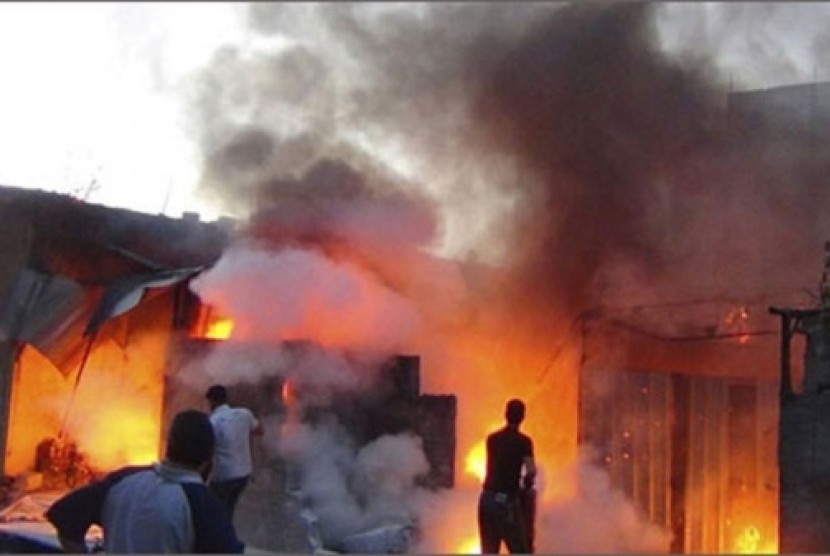REPUBLIKA.CO.ID, ABUZAR CAMP -- Abuobeida Ali was a toddler when militiamen stormed his village in Sudan's Darfur in 2003, murdering his father and driving his family out, ending his hopes for a normal childhood and education.
Now aged 17 and out of school for nine years, he is one of the more than 870,000 Darfuri children living in camps for the displaced who struggle to balance their studies with the need to survive.
"When we came here, I left school after four years to help my mother support my sisters who are studying," Ali said, sitting in the yard behind the hut he shares with his family in the Abuzar camp near West Darfur state capital Geneina.
Since leaving school, he has worked in a restaurant at the small marketplace set up in the winding, dusty alleys of the camp.
He works serving cheap meals and scrubbing plates from morning until sunset bringing in a daily salary of 15 Sudanese pounds ($2.50, 2.20 euros).
In West Darfur, where 30 percent of children are out of primary school, Ali's meagre salary helps to allow his four younger sisters to attend two government-run primary schools that serve the camp.
"I want to go back to school, but circumstances..." he said, his voice trailing off.
Lost childhood
Ali's home village of Nuri - dominated by the Masalit ethnic group he hails from - was one of the first attacked in the 13-year Darfur conflict.
Ethnic minority insurgents rebelled against the Arab-dominated government of Omar al-Bashir in 2003, saying their region was being marginalised.
The Arab-dominated government unleashed ground forces and allied militia to crush the rebels, with villages like Ali's torched and 2.5 million people driven from their land in the ensuing fighting.
Now 1.4 million live in camps for the displaced, more than half of them children.
They risk a "lost childhood," a spokesperson for the United Nations' children's agency (UNICEF) told AFP.
Clashes in Jebel Marra in the heart of Darfur that erupted on January 15 have displaced another 82,000 people, 60 percent of them children.
Sudan's conflict-stricken peripheries "have amongst the highest levels of malnutrition, lowest vaccination coverage, highest percentage of children out of school and highest levels of child mortality," according to UNICEF.
UNICEF said under-18s "unfortunately continue to bear the biggest burden of one of the most protracted man-made disasters."
In a bid to persuade children like Ali to stay in education, the UN's World Food Programme provides nearly 600,000 Darfuri children with meal assistance.
The plates of lentils or fava beans are provided in schools so parents do not have to cover the costs of meals and pull children out to work.
Most stop studying
Two thousand children in Abuzar - one of Darfur's smaller camps with about 17,000 residents - receive this support, among them 10-year-old Darussalam Abdel Gadoos.
Her family fled an attack on their village three years before she was born.
Dressed in a bright blue dress and gleaming white headscarf, Abdel Gadoos was keen to show off what she had learned in school, laughing and chanting her times tables in a lilting voice in a courtyard among the camp's densely packed shacks.
She has already seen many of her classmates leave the government-run school she attends next to the camp.
"Our class is full of boys and girls, there are about 115 of them but most stop studying," she said.
She has been receiving the food assistance in class from the WFP and her father - a community leader in the camp - said it has helped her.
"Lots of children don't go to school because of their circumstances, the father doesn't work, like me - I work one day and then wait a few more without any job," Abdel Gadoos Atim said.
With nine other children to feed, Atim said conditions are difficult for his family, but he wants Abdel Gadoos to stay in school.
His daughter helps the family outside school hours, tending to the goat they keep on a patch of dirt near their home.
But she is determined to continue her studies, and has already decided on a career.
"I want to become a teacher," she smiled.


